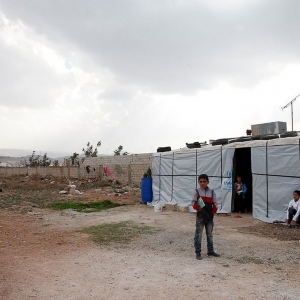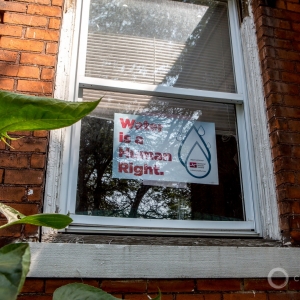Federal Water Tap, July 13: Hundreds of Facilities Invoke EPA Pandemic Rule for Water Pollution Monitoring
The Rundown
The EPA releases the number of facilities taking advantage of a rule that allows them not to monitor water pollution discharges during the pandemic. The House Appropriations Committee approves a slight increase in the EPA 2021 budget. Kamala Harris introduces a water infrastructure bill in the Senate. The EPA proposes deleting 671 properties in East Chicago from the Superfund list but residents remain worried about groundwater contamination elsewhere under the site. The House Natural Resources Committee advanced a bill to permanently authorize a Tribal water rights settlement fund. NOAA forecasts a moderate harmful algal bloom for Lake Erie this summer. And lastly, the government begins fielding public comments for the fifth National Climate Assessment.
“We make clear that the concerns of communities most affected by pollution and health disparities must be centered in our policymaking and ensure that environmental justice is our future. And we make clear to the polluters that are poisoning the air and waterways in environmental justice communities that enough is enough. House Democrats know that the clean, sustainable future we are fighting for cannot exist without a democracy that truly provides equity and justice for all.” — Rep. Donald McEachin (D-VA), delivering the weekly address for the House Democrats, whose climate action plan states that the pollution burdens for poor and minority communities should be at the center of federal climate and environmental policy.
By the Numbers
352: Facilities that will not be submitting water pollution monitoring reports this quarter, taking advantage of an EPA lenience during the pandemic. The number of facilities with Clean Water Act discharges permits is roughly 49,600. The agency’s pandemic policy expires on August 31. (The Hill)
$9.38 billion: Fiscal year 2021 funding for the U.S. Environmental Protection included in a House spending bill. The House Appropriations Committee approved the bill, which represents a 3.5 percent increase for the agency compared to this year. The bill keeps funding for the state revolving funds for drinking water and clean water constant at $2.76 billion; however, there is no new budget authority for WIFIA, another low-interest water infrastructure loan program. Unspent amounts from previous years are being rolled into the 2021 account.
4.5: Expected severity this summer of the annual Lake Erie harmful algal bloom. Severity is rated on a 10-point scale. Last year the bloom rated a 7.3. Severity refers to the mass of the bloom, not the toxicity. (NOAA)
News Briefs
Water Infrastructure Bill
Sen. Kamala Harris (D-CA) introduced the Water for Tomorrow Act, a bill that incorporates elements of previous legislation she has sponsored on water affordability, infrastructure investment, and drought response that total about $3 billion in funding authorizations.
The bill authorizes $150 million a year for five years for water supply projects. All projects must be vetted by the U.S. Fish and Wildlife Service to show that they provide a net ecosystem benefit.
The bill also authorizes $100 million for drinking water projects for small communities (less than 60,000) people with higher than average poverty.
EPA Says East Chicago Superfund Cleanup Partially Complete
The EPA, after consultation with the state of Indiana, is proposing to remove 671 properties in East Chicago from the Superfund list, claiming that cleanup actions to remove lead-contaminated soil are complete.
The properties, most of which are residential, were contaminated by the U.S. Smelter and Lead Refinery.
Residents of the area told the Post-Tribune that they remain concerned about groundwater contamination and are awaiting an EPA evaluation. The portion of the site with groundwater contamination is not being proposed for deletion from the Superfund list at this time.
Comments on the proposal are due August 7. Submit them via www.regulations.gov using docket number EPA-HQ-SFUND-2008-0577.
Indian Water Rights Settlements
The House Natural Resources Committee advanced a bill that would permanently authorize a fund for implementing water rights settlements that Congress has approved with Tribal nations.
Congress established the Reclamation Water Settlements Fund in 2009 but its first allocation — of $120 million to water supply projects on the Navajo Nation and Blackfeet Reservation — was made earlier this year. The fund’s authorization expires in 2034.
Studies and Reports
Paycheck Protection Loans
The U.S. Treasury Department and Small Business Administration published a list of entities that received loans under the Paycheck Protection Program.
Data gurus are already making the numbers easier to browse. Here’s a database of loans greater than $150,000 filtered by the industry code ‘Water supply and irrigation systems.’
Yakima Water Supply
Due to adequate snowpack and river runoff, the Bureau of Reclamation increased the water supply allocation for farmers in Washington’s Yakima Valley. Senior and junior water rights holders will receive full supplies. Combined, reservoirs in the basin are at 90 percent capacity.
On the Radar
Fifth National Climate Assessment
The federal research program that organizes the government’s periodic climate change report is gathering public comments on the general structure of the fifth such assessment.
Specific questions to be addressed include: how to make the information more accessible and useful to multiple audiences; what types of regional information would be most useful; and themes that should be considered.
Public comments are due by August 10 and should be submitted via http://www.globalchange.gov/notices.
The current assessment was published in 2018. The next edition is slated for 2023.
In context: Comprehensive Government Climate Report Warns That Warming Planet Threatens U.S. Water Security
Federal Water Tap is a weekly digest spotting trends in U.S. government water policy. To get more water news, follow Circle of Blue on Twitter and sign up for our newsletter.
Brett writes about agriculture, energy, infrastructure, and the politics and economics of water in the United States. He also writes the Federal Water Tap, Circle of Blue’s weekly digest of U.S. government water news. He is the winner of two Society of Environmental Journalists reporting awards, one of the top honors in American environmental journalism: first place for explanatory reporting for a series on septic system pollution in the United States(2016) and third place for beat reporting in a small market (2014). He received the Sierra Club’s Distinguished Service Award in 2018. Brett lives in Seattle, where he hikes the mountains and bakes pies. Contact Brett Walton






Leave a Reply
Want to join the discussion?Feel free to contribute!